SIDNEY — At the leap of a sturgeon, paddlers gasped and turned to companions to ask, “Did you see it, too?”
Until 20 years ago, sturgeon had been unable to make these impressive leaps around 7 Mile Island on the Kennebec River. The breach of the Edwards Dam in Augusta gave them more of the river back.
Celebrating the anniversary of the impoundment breach, the Natural Resources Council of Maine and the Penobscot Paddle and Chowder Society hosted a paddle trip on the Kennebec River from Sydney to Augusta.
Along with this year being the 20th anniversary of the Edwards Dam breach, the NRCM, which championed the removal, was celebrating its 60th and the PPCS was celebrating its 50th.
The PPCS was founded near the Penobscot River, but now its members, who live around the northeast, travel around New England for outings, including paddling in sea water, whitewater rafting, hiking and skiing.
Ron Chase, PPCS treasurer, said this works for his lifestyle because he has skilled people adventuring with him which adds to safety — and comradery.
“These people are reliable companions,” he said. “They want to be doing this, too.”
Fern Stearns of Hallowell said she and her late husband, Bill, were the second and third paddlers to float through the removed impoundment. Fern is a founding member of the PPCS and one of the masterminds behind the trip. She turned 86 on Thursday.
Around 60 paddlers from throughout Maine put in canoes and kayaks at the Sydney public boat launch and floated to Augusta, stopping at 7 Mile Island for lunch.
Many paddlers had their own watercrafts, but others rode in war canoes, also called voyagers, provided the Penobscot Riverkeepers, which are around 28 feet long and carry up to 12 people.
The sturgeon is one anadromous fish that has returned to the Kennebec River. This type of fish lives in the ocean but spawn in freshwater, inland lakes.
“Taking out the dam had a domino effect,” said Alan Stearns, son of Fern Stearns. He paddled a canoe his father had made.
Following the fish came an assortment of birds, which paddlers counted along the river — osprey, bald eagles, ducks, cormorants and mergansers.
“We have already seen four or five bald eagles,” said PPCS president Kenny DeCoster during the lunch stop on 7 Mile Island. When the group of paddlers posed for a photo after take out, another eagle circled overhead.
DeCoster was paddling this section of the Kennebec for the first time. “Taking out the dam creates this environment.”
Along the shore, vegetation had also returned as bushes, grasses and wildflowers filled in the space below the treeline, the only evidence of how high the river used to be when it was impounded.
Trip leader and charter member of the PPCS Allan Fuller pointed to layers of silt on the riverbank as the paddlers neared the former impoundment.
He explained the layers came from upstream and were deposited near the dam, the terminal point. Now those deposits can go to the sea.
But along with the removal of the Edwards Dam, the Clean Water Act, Fuller said, has dramatically changed the river.
“When I took my boat out of the water,” he said, “it would have a layer of scum on the bottom.”
He said the river was also foamy and foul-smelling.
“On Friday afternoons, the mills discharged into the lake,” he said.
Canoers acknowledged the lack of shorefront homes on the river.
Previously, living along the river would not have been desirable, and living on the water showed a class difference, where the lower class lived on the water, explained Lisa Pohlmann, director of the NRCM.
But now paddler Denny Stoddard of Portland pointed to several Augusta buildings, imagining potential for waterfront restaurants.
Until the Route 3 bridge south of 7 Mile Island, human activity on the river was minimal and appeared mostly as remnants, like the booms that were used to direct logs in the 1800s.
From an age of industry and technology, the paddlers could have imagined what the river looked like centuries ago.
“I would drink (from the river) after I filtered it,” said Pohlmann.
Send questions/comments to the editors.


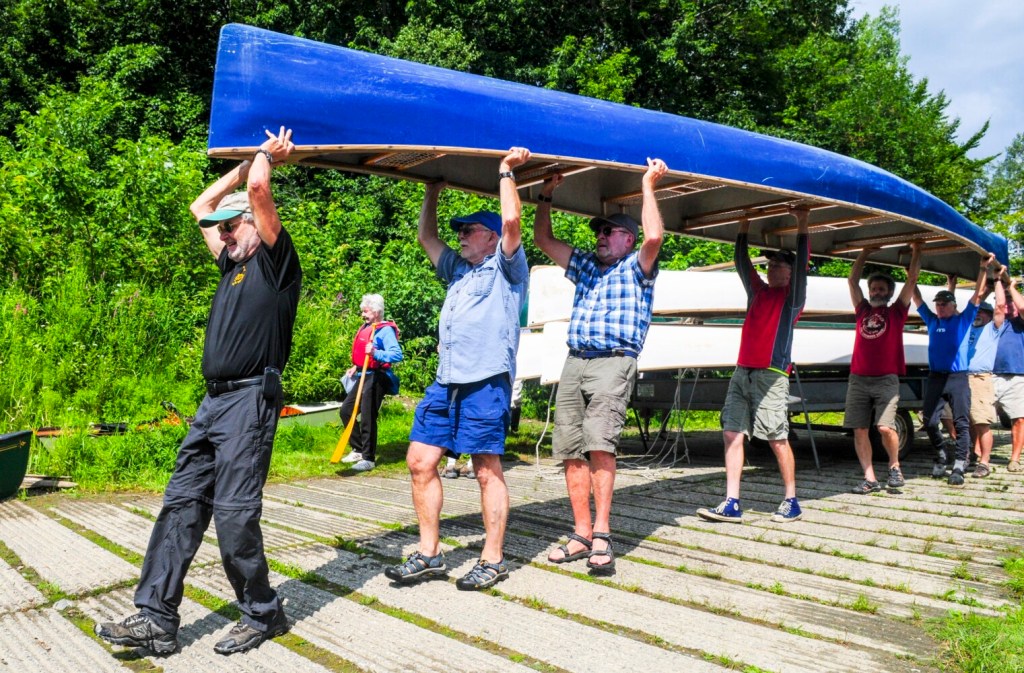
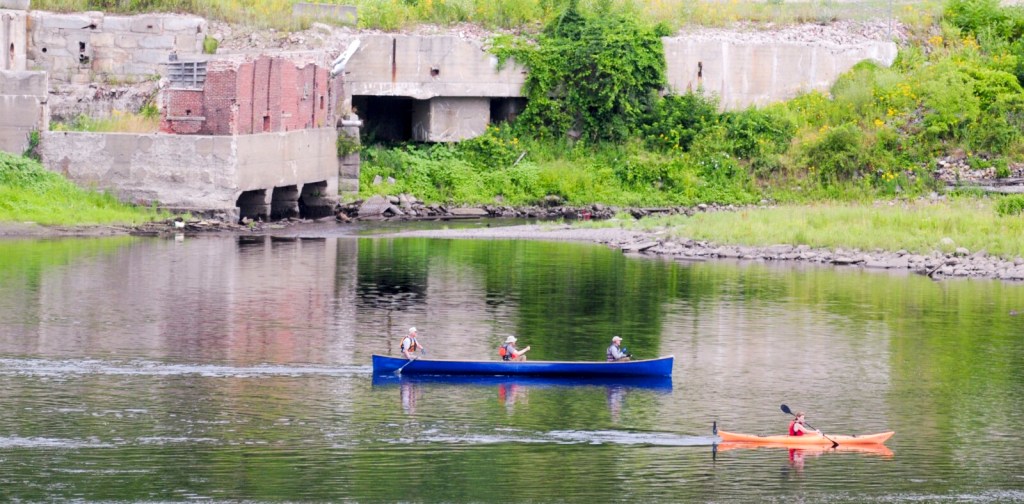
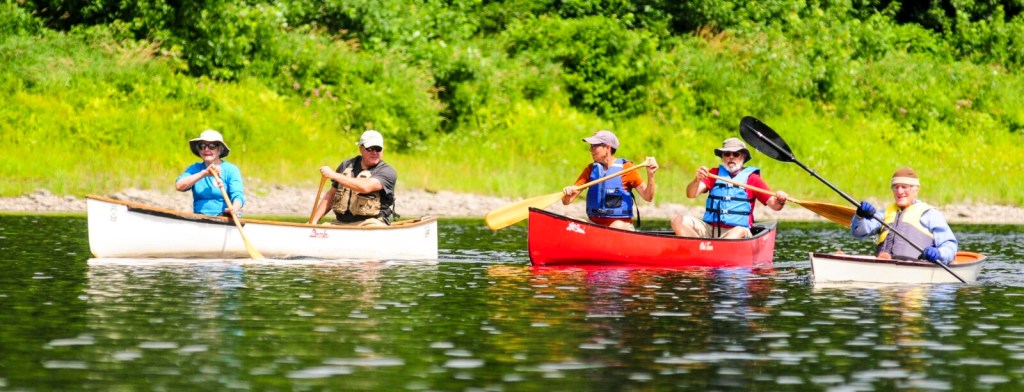
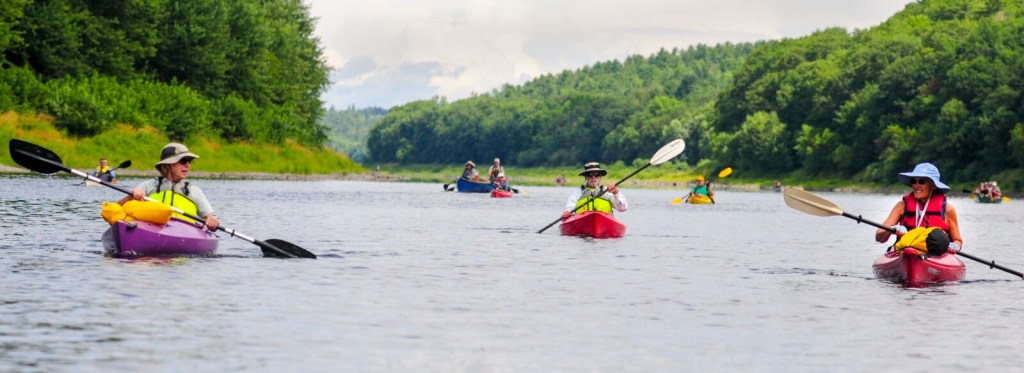
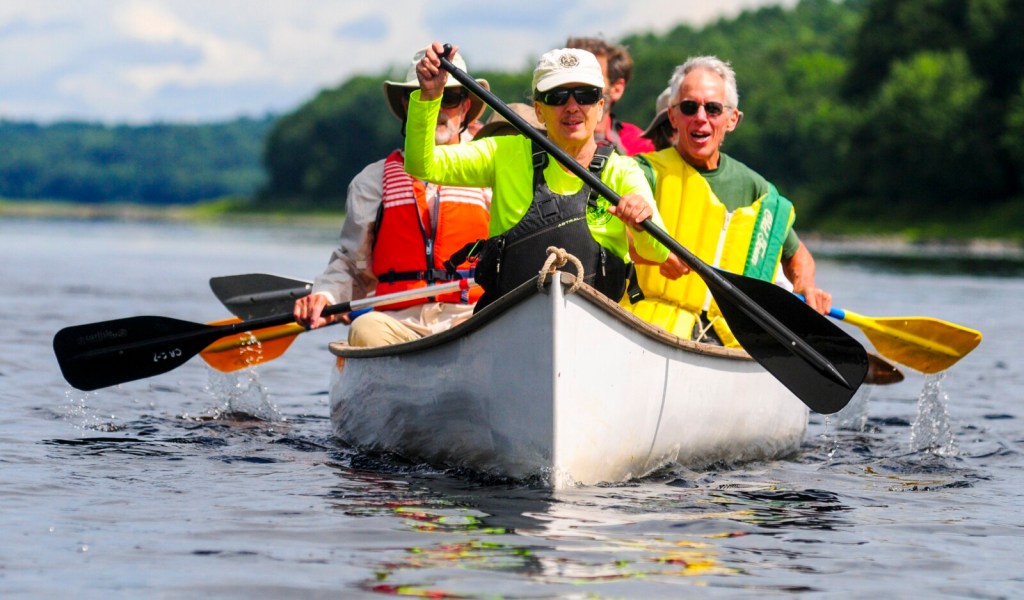
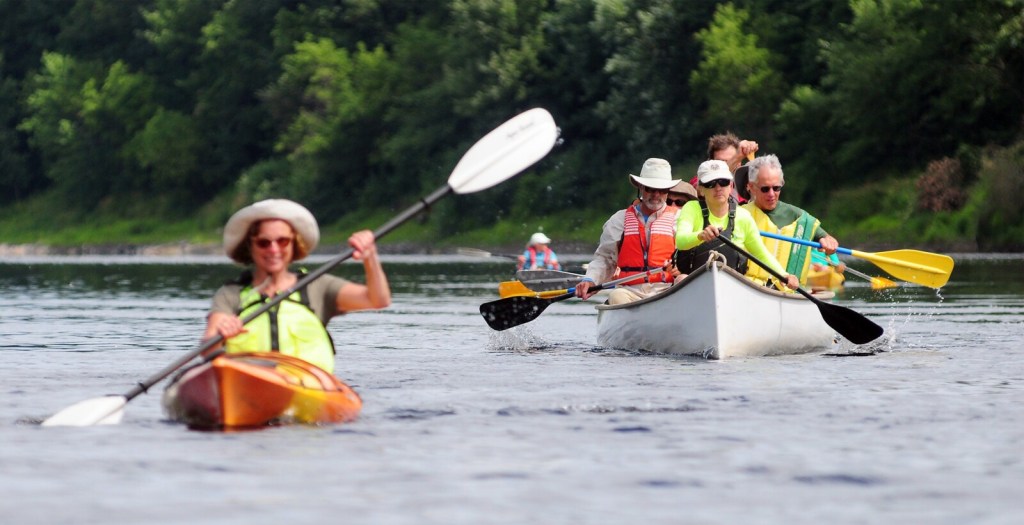

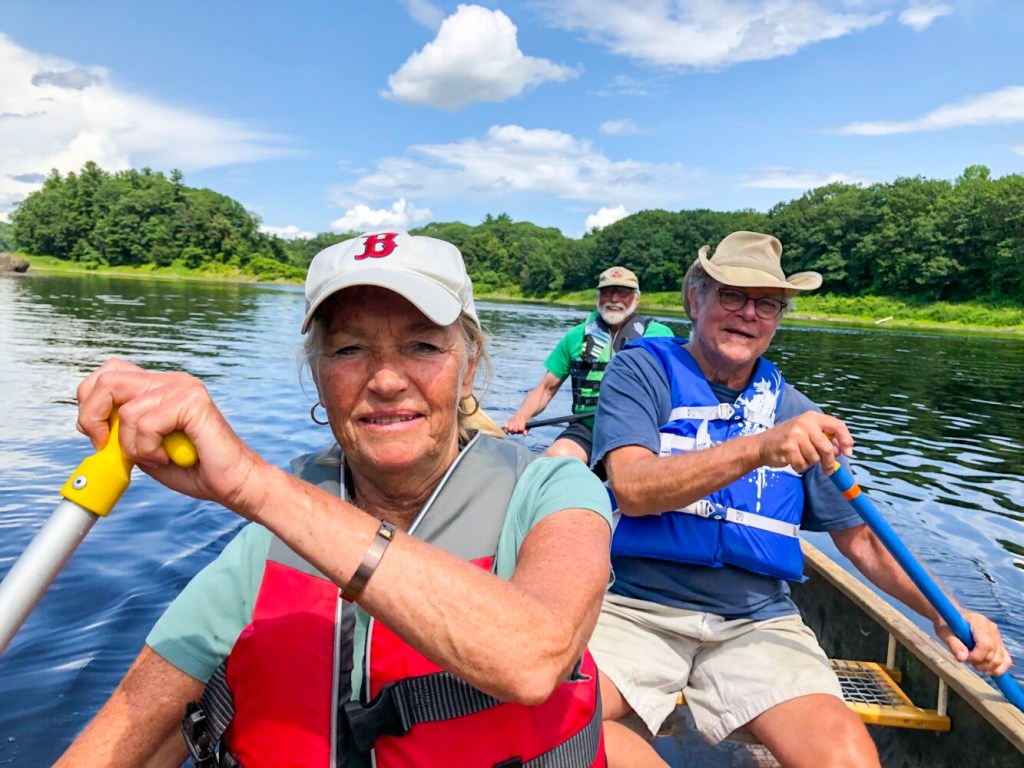
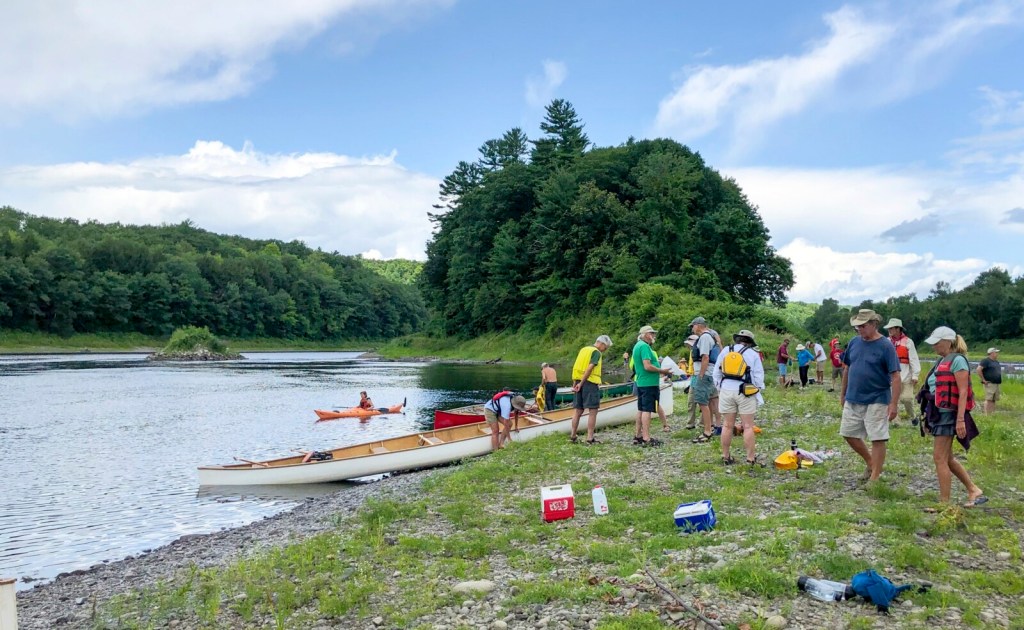
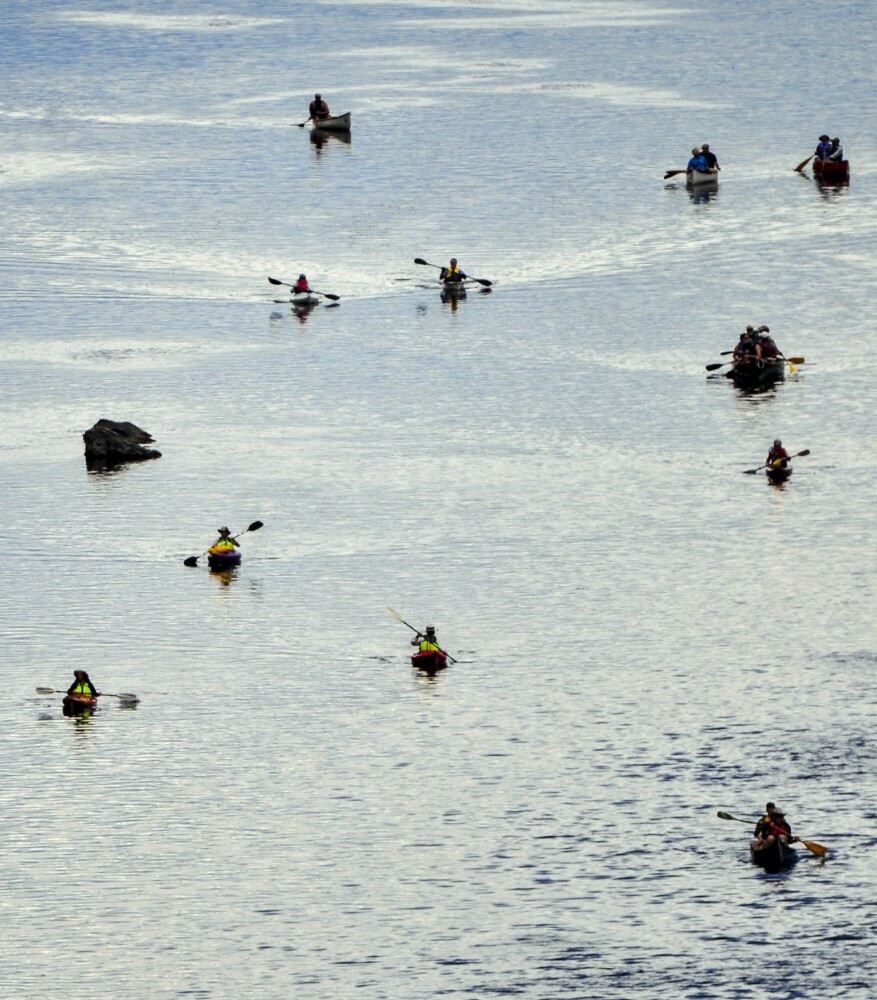
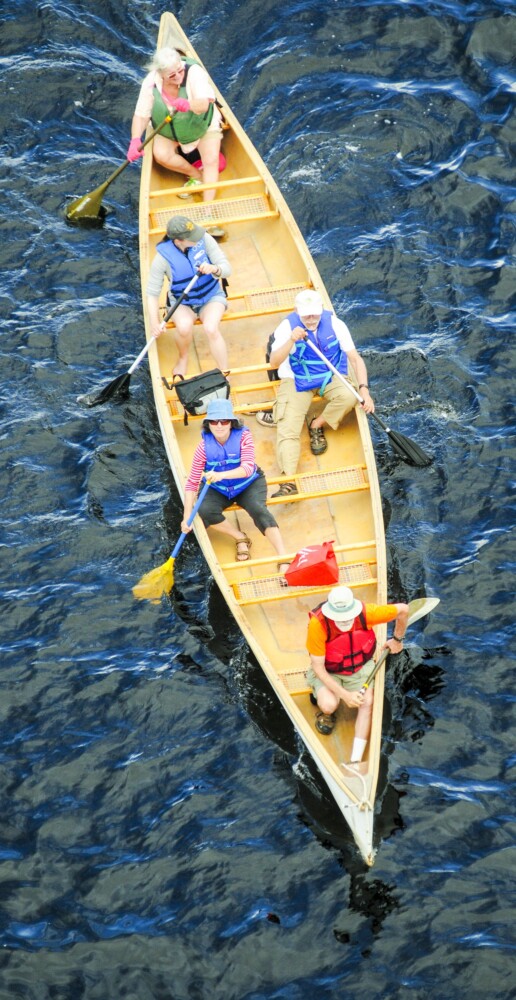


Comments are no longer available on this story